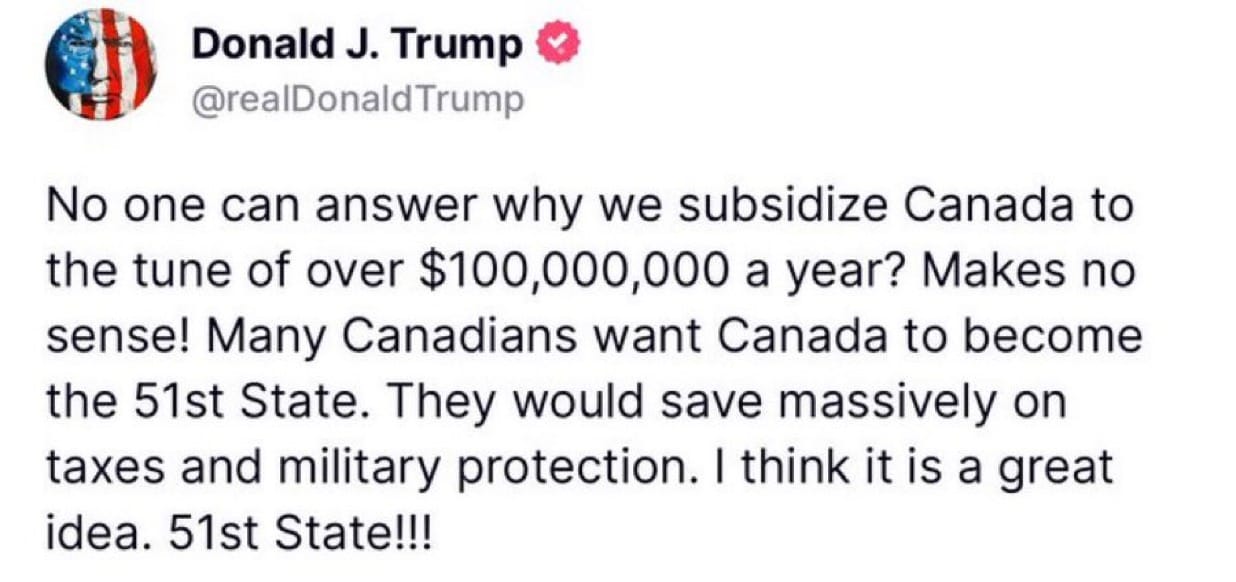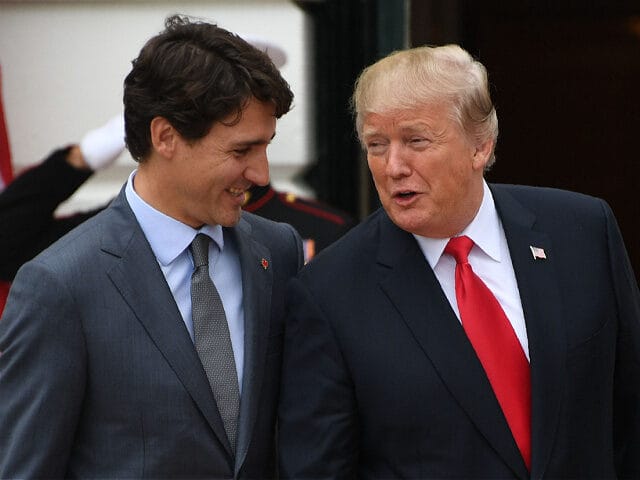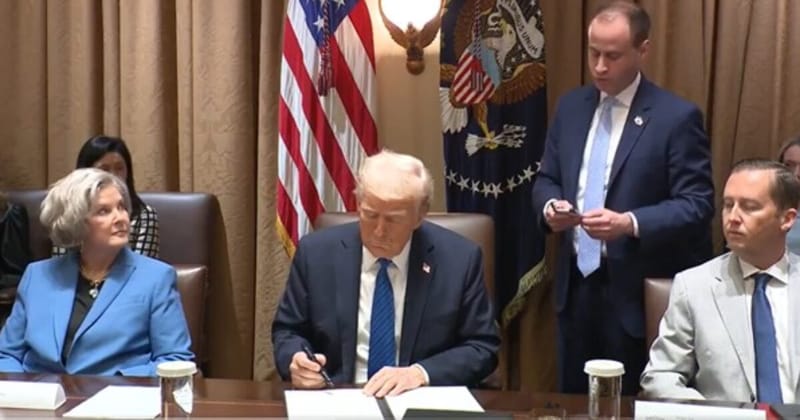Trump Proposes Canada as 51st State, Calls It "A Great Idea"
President-Elect Suggests Integration Could Benefit Both Nations with Lower Taxes and Enhanced Security December 18, 2024 - Washington, D.C President-elect Donald Trump suggested that Canada should become the 51st state of the United States. Speaking on the benefits for both countries, Trump argued that such a move would lead
President-Elect Suggests Integration Could Benefit Both Nations with Lower Taxes and Enhanced Security
December 18, 2024 - Washington, D.C
President-elect Donald Trump suggested that Canada should become the 51st state of the United States. Speaking on the benefits for both countries, Trump argued that such a move would lead to "massive savings on taxes and military protection" for Canadians.
The proposal has sparked a whirlwind of reactions online, with posts on X reflecting a wide array of sentiments. Some see this as a strategic move in international relations, potentially aiming to reshape North American politics. Others question the feasibility and the legal complexities involved in annexing an entire sovereign nation.

Trump's comments come at a time when discussions about international alliances and national sovereignty are particularly poignant. Proponents of the idea argue that integration could streamline trade, reduce border issues, and provide Canada with stronger military backing under the U.S. umbrella. Critics, however, raise concerns about the loss of Canadian identity, independence, and the potential for cultural and political upheaval.
The idea that "many Canadians" support this move, as claimed by Trump, has not been substantiated by independent polls or surveys. This statement has led to debates about whether it reflects genuine public sentiment or is a part of Trump's broader political narrative.
BREAKING: Trump says Canada becoming the 51st state is “a great idea.” pic.twitter.com/Oye9aJFJ9W
— Leading Report (@LeadingReport) December 18, 2024
The proposal's practical implications remain unclear, with constitutional, international law, and diplomatic hurdles to overcome. The reaction from the Canadian government has yet to be formally addressed, but informal responses suggest a mix of bemusement and outright rejection of the notion.
This development comes amidst a trend on X where discussions about Trump's relationship with the media and his potential influence on international relations have been prominent. His recent activities and statements continue to fuel both his base's enthusiasm and his critics' skepticism.
As the conversation unfolds, the world watches to see if this bold suggestion by Trump will remain a mere talking point or evolve into a more serious policy discussion. The implications for both American and Canadian politics, economics, and cultural identity are profound, making this a topic that will undoubtedly continue to generate debate in the coming days.




